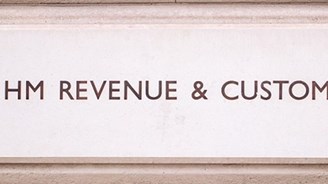Draft Money Laundering Regulations 2017 published

March 2017 saw the government published the long awaited draft Money Laundering Regulations 2017, plus a further consultation in this area. You may recall from my October 2016 blog post that we had been waiting for some time to see this draft legislation, as final legislation is due to come into force by 26 June 2017.
The government's timetable for finalising this legislation is now as follows:
- the new consultation runs to 12 April 2017
- submitted views will then be reviewed
- final policy decisions will be implemented through legislation to come into force by 26 June 2017
- a separate consultation will then be held on subsequent amendments to the Fourth (EU) Money Laundering Directive that may arise as a result of terrorist attacks in Europe and the leak of the 'Panama papers', once a revised Directive has come into force.
In this blog we take a look at what was published in March 2017 and summarise some of the key changes in the proposed regulations.
What was published in March 2017?
Following the consultation in September 2016 on implementation of the 4th Money Laundering Directive (4MLD) and the Fund Transfer Regulation (FTR) on 15th March 2017 the government has issued now a further consultation and draft money laundering regulations. Copies of these are available here.
The consultation document summarises the responses to the September consultation and explains the government's policy decisions. The purpose of this consultation is therefore primarily about whether the draft regulations deliver the government's stated policy aims, although there are some further policy questions posed in the document.
The closing date for comments to be submitted is 12 April 2017.
Key points to note
Some of the key changes arising from the proposed regulations are:
- Persons engaging in financial activity on an occasional or very limited basis with turnover under £100k are outside the scope of 4MLD. However, it should be noted that some specific sectors are excluded from this exemption.
- It is proposed that formation of a company is to be treated as a business relationship whether or not the formation is the only transaction being carried out for that customer. This will mean that customer due diligence (CDD) procedures would be required rather than applying the exemption for a one-off transaction.
- The prescriptive list of occasions when simplified due diligence (SDD) can be applied has been removed and replaced by a non-exhaustive list of factors to consider, which is more in line with a risk based approach. More detailed examples may then be set out in sector specific guidance.
- Whilst 4MLD effectively brings the entire UK gambling industry into scope, the government is taking the option in the Directive for the exemption of all gambling service providers from the requirements of the Directive, except remote and non-remote casinos.
- The government will allow all the exemptions in 4MLD that permit the application of SDD in respect of electronic money products where the risk is low.
- Letting agents will be retained within the scope of the new regulations where they carry out estate agency work. However, the application of the Money Laundering Regulations will not be extended to include lettings activity.
- The draft regulations clarify that for the purposes of those regulations, an estate agent is to be considered as entering into a business relationship with a purchaser as well with as a seller. This means that estate agency businesses must apply CDD to both contracting parties in a transaction.
- The risks posed by politically exposed persons (PEPs), their family members and their known close associates should be assessed on a case-by-case basis and the extent of enhanced due diligence (EDD) measures tailored accordingly rather than applying a uniform approach. The definition of a PEP will be expanded to include those within the UK.
We can expect the Financial Conduct Authority (FCA) to publish specific guidance on the treatment of domestic and foreign PEPs, their family members and their known close associates, following a consultation.
The government has also decided that the definition of a PEP will not extend to high ranking officials of international sporting federations.
- A register of beneficial ownership information for express trusts with tax consequences is planned for summer 2017. This will be administered by HMRC. Any decision about extension of the existing PSC (persons with significant control) regime for companies has been deferred and the consultation invites comments on what other types of entity should be included.
- From 26 June 2017, it is proposed that HMRC will act the registering body for all trust or company service providers (TCSPs), which will mean that HMRC's register will expand to include TCSPs who are supervised by professional bodies. (NB. This does not mean that HMRC will act as the supervisory body for all TCSPs.)
There is also an extension of the 'fit and proper' test to agents of money service businesses, which will be carried out by HMRC.
Finally, the government has also announced its intention to create a new Office for Professional Body Anti-Money Laundering Supervision (OPBAS), hosted by the FCA. The new body will work closely with professional body supervisors, including those in the accountancy sector, to help, and ensure, that they meet the high standards expected of an AML supervisor.
Further consultation will follow in this area, with OPBAS expected to be fully operational by the start of 2018.
We will be keeping our Money Laundering Compliance Manual subscribers up to date with the changes to come through our Money Laundering Update course, details of which can be found here, as well as through their updated manual in due course.



